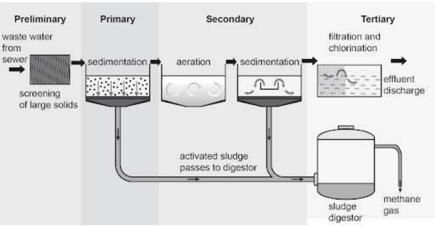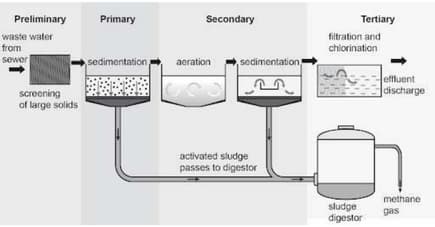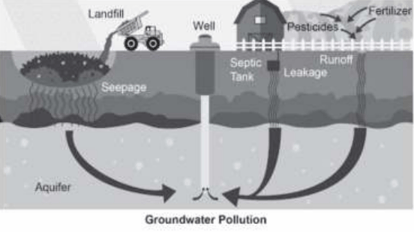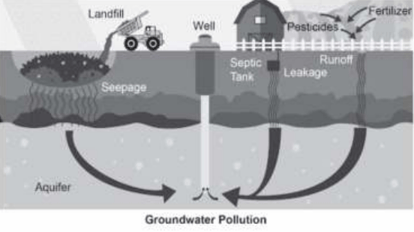NCERT Solutions for Chapter: Wastewater Story, Exercise 1: Exercise
NCERT Science Solutions for Exercise - NCERT Solutions for Chapter: Wastewater Story, Exercise 1: Exercise
Attempt the practice questions on Chapter 18: Wastewater Story, Exercise 1: Exercise with hints and solutions to strengthen your understanding. Science Textbook of Competency Based Questions for Class VII solutions are prepared by Experienced Embibe Experts.
Questions from NCERT Solutions for Chapter: Wastewater Story, Exercise 1: Exercise with Hints & Solutions
The diagram shows a typical wastewater treatment process.
What is the purpose of chlorination in the wastewater treatment process?
The diagram shows a typical wastewater treatment process.

What makes the residue from sludge digestor suitable as organic manure.
Which of these diseases can be caused by polluted water?
The picture shows how human activities can pollute groundwater. An aquifer is a huge reservoir of ground water.

Which of these measures can reduce groundwater pollution?
The picture shows how human activities can pollute groundwater. An aquifer is a huge reservoir of ground water.

How does defecating in the open cause groundwater pollution?
Arrange the steps in a sequence for the removal of microorganisms during the purification of drinking water.
(1) Lime feeder
(2) Mechanical mixing
(3) Alum feeder
(4) Sedimentation tank
(5) Passing through gravel and sand
(6) Chlorine feeder
The survival of aquatic animals in cold countries can be attributed to the property of anomalous expansion of water. Justify.
Differentiate between sewage and sludge.
